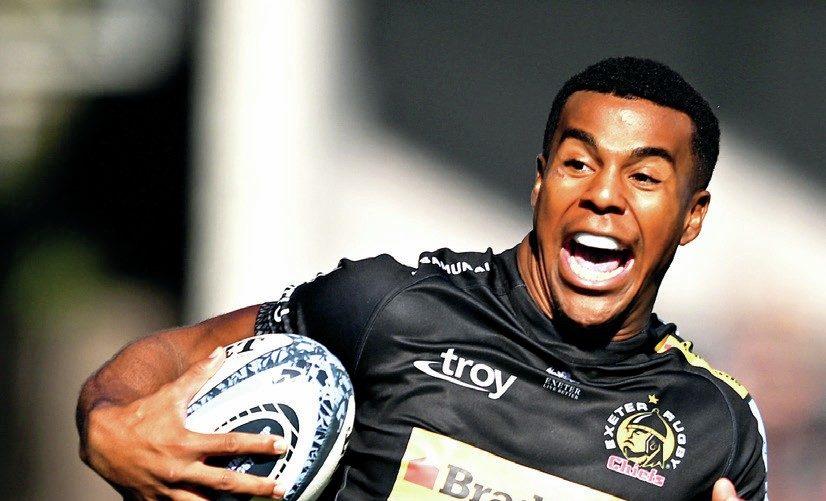One-sided victory is nothing to celebrate

NICK CAIN
READ HIS EXPERT OPINION EVERY WEEK
TONY Rowe is one of the most vociferous of the Premiership owners, and he held court after Exeter had demonstrated just how elastic competitive standards in English club rugby's ring-fenced top league have become by trouncing Premiership champions Saracens 65-10 at Sandy Park last Saturday.
The Chiefs did it despite the visitors having eight current or former internationals in their match 23. The fact that Saracens were missing a further eight internationals, who were playing in the World Cup quarter-finals – seven with England, and one with Fiji – cannot be overlooked, but in the past their squad has been bristlingly competitive despite regularly having large contingents away on international duty.
On the opening weekend of the Premiership season the result was a damning indictment of the ring-fencing malaise turning it into a competition without rigour or jeopardy. The margin of Exeter's win, in which they scored 11 tries to two, was embarrassing for a league which proclaims its vision “to be the best and most competitive league in the world”.
It was achieved by an Exeter team in the process of a rebuild, which featured just two Test players who missed out on the World Cup, England centre Henry Slade and Australia loose-head Scott Sio. It was watched by a crowd of just over 9,300 in a 15,000 capacity stadium – which, with a third of Sandy Park empty for the visit of the title-holders, did little to enhance the standing of the league.
Ticket prices in the West Grandstand are expensive at between £60 and £80, and yet Exeter chief executive Rowe was banging the drum for more money for the Premiership from all quarters, with renewal agreements with the RFU, broadcasters, and sponsors, his primary targets.
In the process, Rowe put most of the blame on the Covid pandemic for the estimated £250 million debt-mountain accumulated by the remaining 10 Premiership clubs. However, he attempted to airbrush one of the most glaring failings of the Premiership clubs, which is that the majority of clubs were living well beyond their means before Covid struck.
Their balance sheets provide clear proof that their debts were due mainly to unsustainable Premiership player wage inflation, which was accelerated by the two marquee player dispensation from the salary cap which was driven by the club owners.
Simon Cohen, the former Leicester chief executive who has recently been appointed to the Board of the Championship clubs as an independent member, confirmed this to me this week.
Cohen said: “As soon as a marquee player system was put in place it was always going to be inflationary. As a game we cannot use Covid to paper over the cracks – you do not have to be a genius to look at club accounts and see the direction of travel.”
The reality is that whenever there was any big revenue injection into the Premiership – whether from CVC or the doubling of RFU funding – it was just used to pay players more.
The Premiership's inability to control wages is what forced Bill Sweeney – the RFU chief executive on whose watch three Premiership and one Championship club have gone bust in the last year – to seek a Government bail-out in June.
Sweeney's lack of transparent governance has been highlighted by his desperation to keep the details of a “quadruple-lock” agreement he is believed to have struck with the DCMS under wraps.
There are grave concerns that this is because Sweeney's proposed record £296 million Professional Game Partnership funding will be syphoned towards Premiership clubs to pay off their outstanding Covid loans.
When you take into consideration that businesses all over the UK have toiled hard and slashed costs to pay off their Covid loans – including Championship and community clubs, and here at The Rugby Paper – it would be a travesty if Premiership clubs were given exemption due to a covert Sweeney deal which deprives funding to the rest of the English club game.
Another backfiring Sweeney initiative is the so-called moratorium on promotion-relegation, which appears to be a precursor to the ring-fenced Premiership franchise system he wants to impose – and might dovetail with recent leaks about the reinvention of a British & Irish ‘super league'.
What is most disappointing about Rowe's recent pronouncements is that he never mentions the promotion-relegation system that allowed Exeter to progress through the league structure to eventually reach the Premiership.
That meritocratic system underpinned everything that Exeter have achieved at elite club level, including winning Premiership and European titles.
No-one is taking issue with what Rowe has achieved in having the business acumen and club-building ability to take Exeter to the top of the English game, but to then try to deny other clubs the right to the promotion from which the Chiefs have benefited is a self-serving double standard.
Rowe is not alone in making the transition from being an ardent proponent of promotion-relegation to supporting ring-fencing, because the late Cecil Duckworth did exactly the same during his drive to make Worcester a Premiership club.
The argument goes that Premiership owners are simply protecting their investments, but what they have also done is denied other English clubs – especially those in the Championship, and below – the same right to progress, grow, and realise their own ambitions.
This protectionism has failed, but worse still it is leading English rugby into a cul-de-sac where competitive standards are declining in the Premiership.
The lack of new blood, and the curtailing of promotion and relegation battles that infuse our sport with drama and energy, has diminished English club rugby union's attractiveness to the very broadcasters and sponsors Rowe wants to pump money into the game.
It has been the biggest mistake of the professional era in England, and it is one in which this RFU administration, by pandering to the ring-fencing demands of Premiership owners, has been entirely complicit.